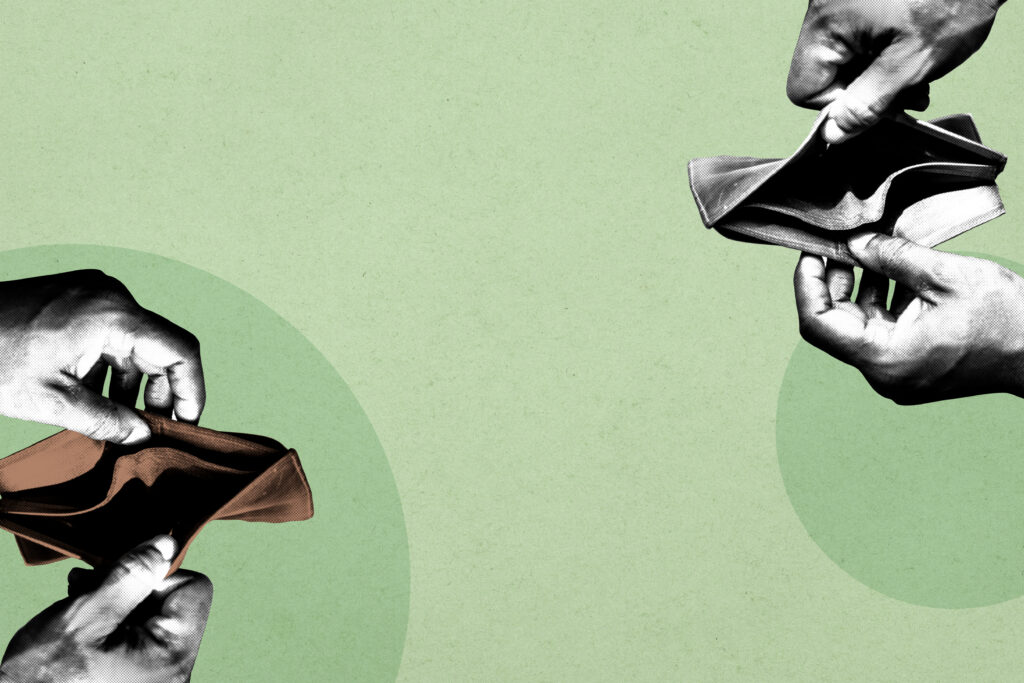Once we’ve named the emotional weight of debt (Part 1), rejected the pressure to fix it overnight (Part 2), and let go of the shame and self-denial we were taught to carry (Part 3), we land here:
Now what?
Now it’s time to build something that holds you up, especially when motivation runs out, money is tight, or life feels heavy.
That “something” is a system.
A system is not a spreadsheet or a savings challenge. It’s not a trendy budgeting method or a quick fix.
A system is a structure that supports you week after week, no matter what’s going on in your life. It helps you stay consistent, not perfect. It helps you move forward without restarting every month.
What Does a Financial System Actually Look Like?
A financial system is made up of routines, rules, and tools that make your money easier to manage. It doesn’t have to be complicated, but it needs consistency.
Here are some core types of systems that help people move through debt in a sustainable, realistic way:
1. A Weekly Money Check-In System
This is the anchor.
Set one day a week, Sunday evening, Friday morning, or whatever works for you, and build a routine around checking in with your money. This day is the anchor, providing a consistent reference point in your financial week.
During this time, you can:
- Look at what’s been paid
- See what’s coming up
- Transfer money if needed
- Adjust your plan for the week
You don’t need the latest software—dedicated time and a clear format will do just fine.
This is the system that keeps you honest, transparent, and in motion.
2. A Bill Payment System
Late fees and overdrafts often come from disorganization, not irresponsibility.
A bill payment system includes:
- A calendar with due dates
- Minimum payments automated where possible
- Reminders set 2–3 days before each bill hits
- One place where all your bills live (a spreadsheet, a tracker, a notebook, whatever you’ll actually use)
Even better? Automate what you can and create a monthly “bill prep” day to move money into the right places.
3. A Spending Boundary System
Spending boundaries are not about denying yourself things, but more so about clarity.
A spending boundary system includes:
- Pre-set spending limits by category (food, gas, kids, etc.)
- A “pause rule” (for example, if a purchase you’d like to make is over $100, wait 24 hours)
- Weekly reviews of where your money went
It’s less about controlling every dollar and more about creating guardrails that help you stay focused.
4. A Debt Tracking System
You cannot pay off what you don’t track.
Your debt system should include:
- A list of balances, interest rates, and due dates
- A payoff plan (snowball, avalanche, or a hybrid of both)
- A visual tracker, such as progress charts, graphs, or color-coded logs, can keep you encouraged.
If this overwhelms you, SmartSpending helps simplify the process by creating affordable payoff plans with personalized support so you’re not trying to figure it all out alone.
5. A Support System
Even with all this, you cannot ‘system’ your way out of emotional burnout.
You need people who help you stay grounded and remind you that you’re not alone.
This might include:
- A money accountability partner
- A debt relief coach or advisor
- A small circle of friends who get it
- Community resources or programs that offer structure and encouragement
A support system is just as real and necessary as a budget.
Less Winging It, More Systems
A financial system works when you can trust it. It helps you:
- Make fewer impulsive decisions
- Feel less anxious when payday hits
- Reduce shame around setbacks
- Stop starting from scratch every month
When you have a system, you don’t need to be “on” all the time. The structure works, even when your energy doesn’t.
So Now What?
You’ve done the emotional work.
You’ve let go of the shame.
You’ve challenged the pressure to do it all at once.
Now it’s time to put some structure in place.
Because debt freedom isn’t just about discipline, it’s about design.
And systems are what keep you free long after the motivation wears off.
The content provided is intended for informational purposes only. Estimates or statements contained within may be based on prior results or from third parties. The views expressed in these materials are those of the author and may not reflect the view of SmartSpending. We make no guarantees that the information contained on this site will be accurate or applicable and results may vary depending on individual situations. Contact a financial and/or tax professional regarding your specific financial and tax situation. Please visit our terms of service for full terms governing the use this site.

